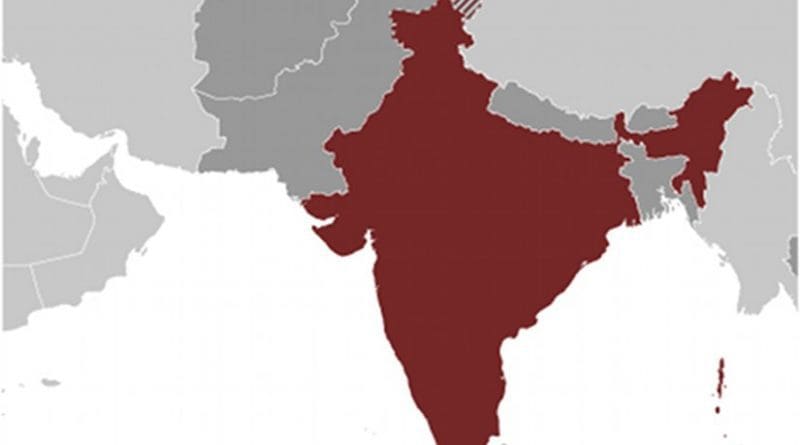India: Of Terror, Callous Cops And Defiant Minds – Analysis
The site of bare-handed policemen carrying bicycles suspected to be Improvised Explosive Devices (IEDs) and personnel wearing bullet-proof jackets (not bomb suits) searching for clues after the August 1 serial blasts in Pune would have amused many and troubled others. Many would have expected such callousness to be a part of history, especially after three-and-a-half years of efforts at installing a counter-terror architecture for the country.
The fact that such sights have persisted in various forms point at an enduring security culture marked by inertia, callousness and disrespect for the lives of the civilians. In short, it portrays a mental paralysis in the security establishment which must go for the country to hope for freedom from fear.
The three following trends sum up the country’s anti-terrorism preparedness.
First, the case of non-existent leadership. Counter-insurgency success stories in Punjab, Tripura and Andhra Pradesh detail the significant contribution made by individual police officers. The present trend, however, reveals that such breed of officers has either disappeared or is not being given the posting it deserves. The nation witnessed the sorry figure the Assam Director General of Police portrayed during the Guwahati molestation case in July. In Pune, within hours of the blasts, the city’s Police Commissioner Gulabrao Pol ruled out the explosions as a “mischief and not terror”, presenting one of the most bizarre description of terrorism ever heard in recent history. To Pol’s mind, low-intensity blasts, should not be considered as a terror plot, for these do not cause deaths. Within a day, however, reports indicated that the low intensity of the explosions was because of a designing fault and certainly not an act of grace bestowed by the bombers on Pune’s residents. Pol is considered to be close to the ruling disposition in Maharashtra and it is of no surprise that he sounded like a politician rather than a policeman while delivering his verdict on the blasts.
Second, lives of security personnel are not important even to the police departments. CRPF personnel in Jammu and Kashmir do not have proper uniforms and shoes. Till 2010, Assam police’s modernisation plan involved procurement of rifles and no bullets. Till few years ago, Nagaland police deployed most of its personnel in the urban areas of the state, when bulk of the insurgency, extortion, abduction took place in the rural areas. And at least till late 2011, CRPF personnel across the country ate food cooked with unhealthy Dalda. Such examples are almost never-ending. It represents the clog in the mind of the police leadership which the decades-old modernisation plans have failed to clear.
To add to the list of such inertia is the failure of the Maharashtra police department to buy a single bomb suit since 2007. This bureaucratic harakiri has resulted in the situation when the Pune Police has a lone bomb suit in its possession, which is at least 12 years old and is as good as the bullet-proof jackets the police personnel wore to detect the explosives on August 1. The mind of the police leadership appears to be the biggest obstacle for any positive change.
Third, nothing ever moves in India, not even with dead bodies all around. Ironically, while terror attacks expose the criminal negligence of the authorities who slumber over the trail of deaths and destruction left behind by such attacks, these necessarily are not drivers towards affirmative changes. The absence of CCTV cameras is a case in point.
CCTV cameras were non-existent in front of the Delhi High Court when a bomb exploded in its parking lot in May 2011. No cameras were put up till another blast took place, at the same location in September 2011, killing 14 persons and injuring another 88. Then Home Minister P Chidambaram blamed the Public Works Department (PWD) for dragging its feet on the same. CCTV cameras provided blurred and unclear records of the serial blasts in July 2011 in Mumbai. In Pune too, there were no cameras on the blast sites as the Pune Municipal Corporation had defaulted on payment to the private contractor who had installed the cameras.
Chidambaram’s tenure as home minister had some definite successes. However, his 44 months’ term clearly failed in eradicating the persisting resistance towards change at the structural, functional and mental level in the country’s police establishment, which resembles the old adage—“You can take a man out of the village but can’t take village out of a man.” It will be interesting to watch out for any change that occurs under the new home minister.
This article appeared at The New Indian Express and is reprinted with permission.


The government and the lack of seriousness it shows is not only in security matters but all it’s endevours. Almost always it has it head in the sand. The economy is in shambles and basic services are lacking. It is a tribute to the resilience of the people that the nation still exsitts. Any growth in the country is inspite of the government. The political culture needs overhaul.it is a very depressing situation.